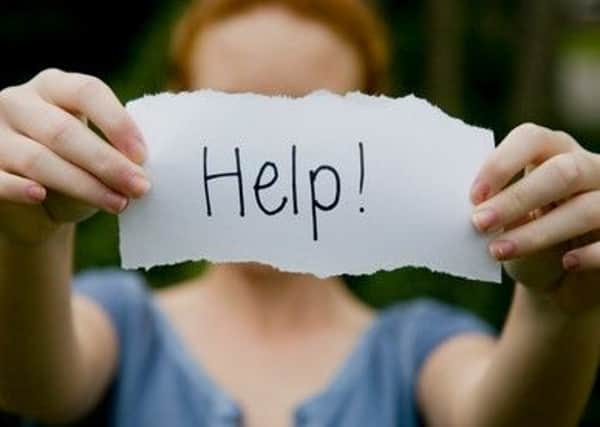Everybody hurts: How self harm has taken a grip in the borough


In an exclusive interview with The Coleraine Times to mark Self-Harm Awareness Day, Dr Denise O’ Hagan encouraged people who are affected by self-harm to seek help.
Statistics from the second annual report from the Northern Ireland Self-Harm Registry 2013-1014 showed that 724 people attended Causeway Hospital in Coleraine for either self harm issues (545) or suicidal ideation (179) - that’s almost two people each day.
Advertisement
Advertisement
Over the same period there were 8,453 self harm cases at 12 emergency departments across the Province, involving 5,983 people. There were 2064 cases in the Northern Health Trust area alone.
Persons aged 15-29 accounted for almost half (44%) of all self-harm presentations, with 16% of presentations being made by 20-24 year olds, followed by 15-19 year olds (15%) and 25-29 year olds (13%).
Worryingly for our area, the report showed that the largest increases were observed in the Northern Trust (+19.6%) followed by the Southern Trust (+5.6%), the Belfast Trust (+5.6%) and the Western Trust (+2.8%).
The Northern Trust also had a higher number of female cases at 54.6%.
Advertisement
Advertisement
Across NI, drug overdose was the most common method of self-harm, accounting for almost three quarters of presentations (74%), followed by self-cutting which was involved in 24% of presentations.
Dr O’Hagan said: “The figures in the report show the numbers attending emergency departments, but they do not show the numbers of people presenting themselves to their GP or others, so in this respect we are only seeing the tip of the iceberg.
“Self harming is very much a hidden problem in our society. Our message would be to someone self harming or knows someone who is, not to suffer in silence.
“It’s a relatively common problem now and not getting help could be very serious and in some cases it can lead to suicide.”
Advertisement
Advertisement
Dr O’Hagan said that there is still a lot of shame and stigma associated with those who self harm but it was important for those to come forward to get the help they need.
If someone has done something which might result in serious harm they should go to a hospital Emergency Department or call 999 if more urgent assistance is needed. In less urgent situations, people can approach their GP who will determine what support services are most suitable for that individual.
“It’s important for people not to be judgmental but rather to encourage those who need help to come forward.
“Talking about self-harm can encourage people to open up about their feelings and seek help, which can be the beginning of their journey to recovery.
Advertisement
Advertisement
“It is a mental health issue and there’s no one reason why people do it. It could be a relationship problem or abuse, an issue with school or at home, it’s a very individual thing and differs from person to person.
“The person can feel a deep sense of hopelessness and isolation and the one common theme is that they are going through severe emotional distress.
“For some people, self-harm is a way of coping with and communicating their distress but for others it can be associated with a wish to end their lives and therefore it should always be taken seriously. “
Dr O’Hagan said that it was important to recognise that self harming was not exclusively a problem among young people.
Advertisement
Advertisement
She pointed to research by Prof Mike Tomlinson of Queen’s University’s School of Sociology, Social policy and Social work which found that survivors of the worst years of the Troubles in Northern Ireland were more prone to suicide and using anti-depressants.
Prof Tomlinson wrote: “The puzzle is, why have we seen a dramatic increase in the [suicide] rate since 1998? What this research reveals for the first time is that the age groups with the highest suicide rates are the cohort who were children during the worst years of the violence.”
And Dr O’Hagan says said that figures quoted in a Lifestyle and Coping Survey by the University of Strathclyde which showed that one in ten of 15 to 16 year olds in Northern Ireland had self-harmed were probably when other factors were taken into consideration.
A new service for people who self-harm and their carers was established in October 2015.
Advertisement
Advertisement
The Self-Harm Intervention Programme (SHIP) is funded by the PHA and delivered by community and voluntary sector organisations across each of the five Health and Social Care Trust areas.
“Following assessment, people who self-harm may be referred to SHIP for counselling to help them improve their coping skills and help reduce or prevent further self-harming behaviour,” explains Dr O’Hagan.
“SHIP also offers education and support to carers to help them better understand and cope with this issue and to ensure they know how to obtain help in a crisis situation. Carers can avail of the service for themselves even if the person who self-harms does not want to attend. This can be arranged by speaking to your GP.”
At present the service is open to people aged 18 and over and the intention is to accept referrals of young people aged 11-17 in the near future.
You can also attend the hospital Emergency Departments or call 999 if more urgent assistance is needed.